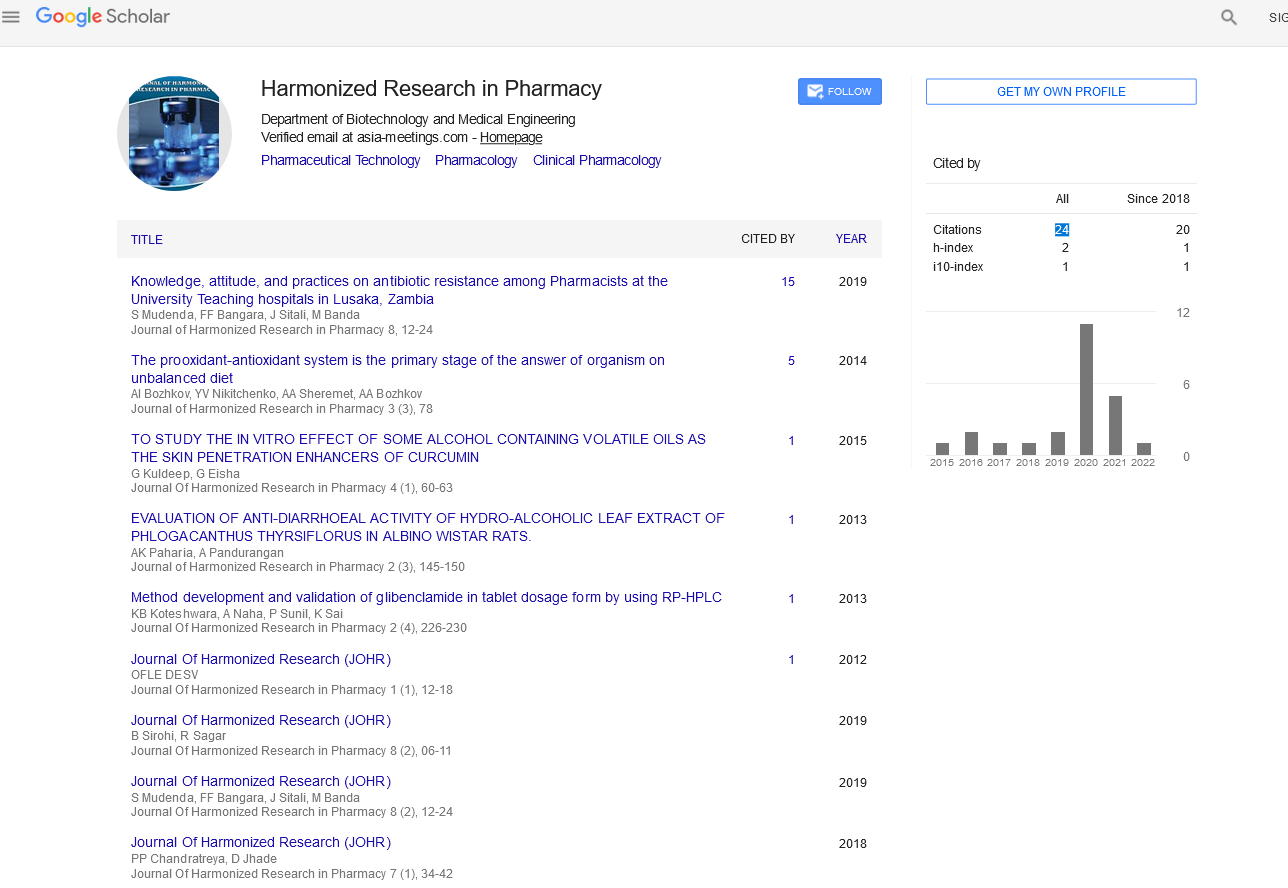CHEMICAL FINGERPRINT ANALYSIS, IN-VITRO ANTIMICROBIAL ACTIVITY AND TOXICOLOGICAL ASPECTS OF A POLYHERBO-MINERAL OIL FORMULATION: KUSTHARAKSASA TAILA
Abstract
Author(s): Nidhi Dubey
The objectives of the study were to test the polyherbo-mineral oil Kustharaksasa taila (KT) for in vitro antimicrobial activity against Gram-negative and positive bacteria, Candida species and dermat ophytes, to evaluate its acute toxicological effects in vivo and to obtain the chemical fingerprints using various analytical techniques.The antimicrobial activity, in vitro, was initially evaluated by the agar-well diffusion technique, and the MIC and minimum fungicidal concentration (MFC) were determined by the broth micro-dilution method. The acute toxicological effects were determined in rabbits and rats, respectively. The chemical fingerprints of the oil were obtained by gas chromatography coupled to mass spectroscopy, High performance thin layer chromatography (HPTLC), Fourier transform infra red (FTIR) spectroscopy and X-Ray powder diffraction (XRPD) analysis.The KT was found effective against all tested strains in agar well diffusion method. The minimum inhibitory concentration of KT ranged from 19.5 to 312 µg/ml, the minimum bactericidal concentration ranged from 39 to 312µg/ml while the minimum fungicidal concentration ranged from 156 to 625 µg/ml. The acute administration and dermal application of KT was devoid of toxicity in rats. The characteristic chromatographic peaks of the chromatographic fingerprints and d spacing values in the XRD spectra were summarized for future qualitative analysis. KT may be a promising source in the search for new antimicrobial drugs due to its efficacy and low toxicity.

Google Scholar citation report
Citations : 147
Journal of Harmonized Research in Pharmacy received 147 citations as per google scholar report









